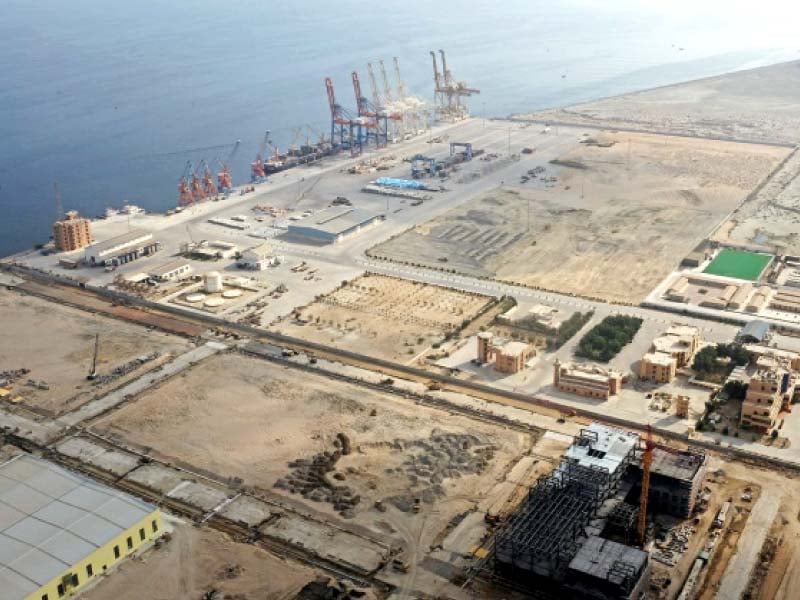ghazi52
PDF THINK TANK: ANALYST

- Joined
- Mar 21, 2007
- Messages
- 101,790
- Reaction score
- 106
- Country
- Location
CPEC moves towards new direction of development
PM aide says govt will help set up large-scale manufacturing units, IT zones
December 25, 2020

In second phase of CPEC, there is high focus on social development and projects that are closer to the masses such as health and education.
ISLAMABAD:The China-Pakistan Economic Corridor (CPEC) is moving towards a new direction of industrial and agricultural development, which needs a proactive role by the private sector combined with technology companies, said Adviser to Prime Minister on Commerce and Investment Abdul Razak Dawood.
During first meeting of the recently reconstituted CPEC Business Council, Dawood emphasised that the government would facilitate at the maximum level to ensure establishment of large-scale manufacturing units and information technology zones under CPEC.
He highlighted Pakistan’s potential in petrochemical, steel manufacturing and IT sectors, appreciating the recommendations made by the council members for development of projects in these sectors with the help of Chinese and other potential investors.
Board of Investment (BOI) Chairman Atif R Bokhari said the government was fully committed to ensuring a business-friendly environment by providing incentives to the industry.
He stressed that efforts were being made to ensure efficiency in the Special Economic Zones (SEZs) by offering one-window operation in line with global practices.
“Rashakai SEZ will be a model zone, followed by Dhabeji SEZ, which is uniquely placed and open for local and foreign investors equally,” he added.
Bokhari added that efforts were made to develop SEZs for the services sector and approval was accorded to IT zones to facilitate information technology and software development.
“Electronics, vehicle and mobile phone manufacturing policies have been introduced and the same can be adopted for hardware manufacturing with support of the private sector,” he stated.
Earlier, the members proposed inclusion of new sectors and projects in CPEC. It was proposed that petrochemical production at competitive costs required establishment of a petrochemical cracker plant and “the best possible option is to include this project in CPEC”.
It was highlighted that the tourism sector could be promoted by offering incentives and financial support. It was suggested that one-window facilitation for economic zones be made under one authority with representation from all the ministries concerned to make the country an investment-friendly destination.
Private sector representatives recommended that renminbi-based transactions should be facilitated for bilateral trade and investment with China. In addition to business visas, facilitation in getting work visa for foreign experts should be enhanced.
Published in The Express Tribune, December 25th, 2020.
PM aide says govt will help set up large-scale manufacturing units, IT zones
December 25, 2020

In second phase of CPEC, there is high focus on social development and projects that are closer to the masses such as health and education.
ISLAMABAD:The China-Pakistan Economic Corridor (CPEC) is moving towards a new direction of industrial and agricultural development, which needs a proactive role by the private sector combined with technology companies, said Adviser to Prime Minister on Commerce and Investment Abdul Razak Dawood.
During first meeting of the recently reconstituted CPEC Business Council, Dawood emphasised that the government would facilitate at the maximum level to ensure establishment of large-scale manufacturing units and information technology zones under CPEC.
He highlighted Pakistan’s potential in petrochemical, steel manufacturing and IT sectors, appreciating the recommendations made by the council members for development of projects in these sectors with the help of Chinese and other potential investors.
Board of Investment (BOI) Chairman Atif R Bokhari said the government was fully committed to ensuring a business-friendly environment by providing incentives to the industry.
He stressed that efforts were being made to ensure efficiency in the Special Economic Zones (SEZs) by offering one-window operation in line with global practices.
“Rashakai SEZ will be a model zone, followed by Dhabeji SEZ, which is uniquely placed and open for local and foreign investors equally,” he added.
Bokhari added that efforts were made to develop SEZs for the services sector and approval was accorded to IT zones to facilitate information technology and software development.
“Electronics, vehicle and mobile phone manufacturing policies have been introduced and the same can be adopted for hardware manufacturing with support of the private sector,” he stated.
Earlier, the members proposed inclusion of new sectors and projects in CPEC. It was proposed that petrochemical production at competitive costs required establishment of a petrochemical cracker plant and “the best possible option is to include this project in CPEC”.
It was highlighted that the tourism sector could be promoted by offering incentives and financial support. It was suggested that one-window facilitation for economic zones be made under one authority with representation from all the ministries concerned to make the country an investment-friendly destination.
Private sector representatives recommended that renminbi-based transactions should be facilitated for bilateral trade and investment with China. In addition to business visas, facilitation in getting work visa for foreign experts should be enhanced.
Published in The Express Tribune, December 25th, 2020.




